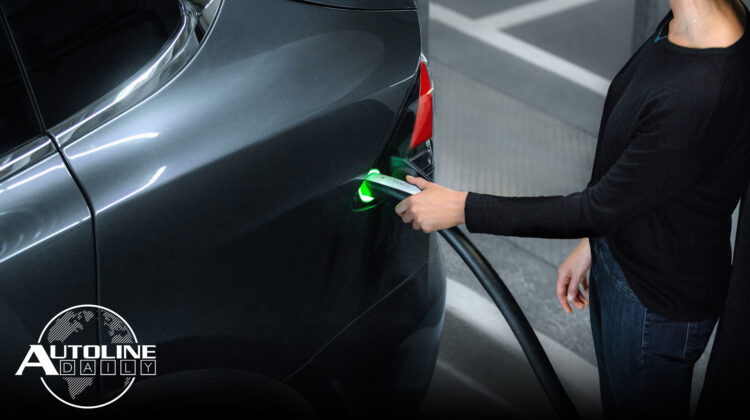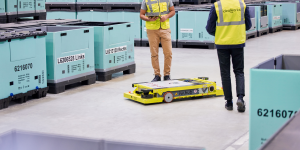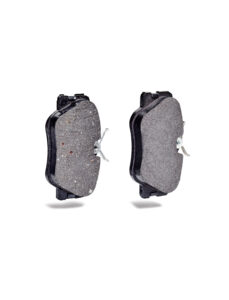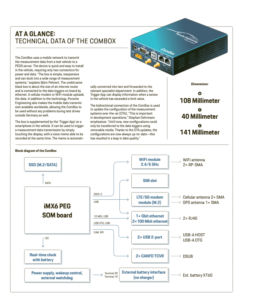

Follow us on social media:
Runtime: 10:21
0:07 Ford Sales Worth the Wait
0:42 Toyota’s Profits Fall
1:24 Most EVs Won’t Qualify for Federal Credit
3:21 BMW Could Help Other OEMs Modernize Plants
4:36 Counterfeit Parts on the Rise
5:29 Porsche Aims to Speed Up Vehicle Development
7:13 CATL Not Likely to Open Plant in the U.S.
8:02 Mid-Size Cars Struggle on Updated Impact Test
9:00 Lucid Cuts Production Forecast in Half
Visit our sponsors to thank them for their support of Autoline Daily: Bridgestone, Intrepid Control Systems, MEDC, Schaeffler and Teijin Automotive.
This is Autoline Daily, the show dedicated to enthusiasts of the global automotive industry.
FORD SALES WORTH THE WAIT
Ford always reports its monthly sales in the U.S. a day after everyone else and it was kind of worth the wait. It sold nearly 164,000 vehicles, which was up an impressive 36%. It was a strong performance across the board, but we especially took note of the Mach-E. Sales were up 74% and it handily outsold the rest of the Mustang lineup. Ford also delivered over 2,000 F-150 Lightnings and over 500 e-Transit vans.
TOYOTA’S PROFITS FALL
Despite the chip shortage, sky high inflation, and covid interruptions, most automakers are still reporting fairly strong financial earnings. But not Toyota. It sold just over 2 million vehicles worldwide in the last quarter. That was down 6%, which is not too bad. And its revenue rose to $63.6 billion or up 7%, which is pretty good. But its operating profit fell 42%, which comes as quite a surprise. Toyota blames supply constraints and high raw material prices and vows it will work to overcome them.
MOST EVs WON’T QUALIFY FOR FEDERAL CREDIT
Sales of electric cars in the U.S. were expected to get a big boost from a bill that Congress is about to enact that will remove the cap on EV incentives. But the Congressional Budget Office, or CBO, says not many electric cars will qualify to get them. Get this, the CBO says next year only about 11,000 EVs will qualify to get the $7,500 credit. As the bill sits now, electric cars that cost over $50,000, vans that cost over $64,000 and trucks that cost over $80,000 do not qualify. Also, 50% of the materials in the batteries have to be sourced in North America, and from 2024 onward that rises to 60%. Automakers are pushing to loosen that up and get more EVs to qualify. We’ll see if enough Democrats agree to go along with that because Reuters reports that Republicans are circling the wagons to oppose any EV credits at all.
BMW COULD HELP OTHER OEMs MODERNIZE PLANTS
BMW could actually be helping other automakers modernize their manufacturing plants. Idealworks, which is a subsidiary of BMW and handles logistics, is teaming up with Linde Material Handling, a company known for making forklifts. Idealworks will supply Linde with two products, one an autonomous mobile robot and the other a cloud platform, which Linde will pump into its sales and service network that spans more than 100 countries. The robots are able to independently pick up, transport and deliver payloads of up to 1,000 kilograms or over 2,200 pounds without the need for magnets, markers or QR codes. This is just another example of how automakers plan to generate more revenue outside of building vehicles. And speaking of manufacturing advancements, you might want to check out our interview with the supplier Forvia, which is using augmented and virtual reality to improve life on the factory floor. In fact, you can catch all of our coverage from the Management Briefing Seminars on our website or YouTube channel.
COUNTERFEIT PARTS ON THE RISE
With vehicle prices at an all-time high and inventory at an all-time low, more and more people are fixing what they’ve got. But it’s also led to an increase of fake or counterfeit parts. Mercedes actively tries to track down and get rid of these components, especially ones that are safety related, like wheels, brake pads and suspension components. Last year it helped seize 1.86 million counterfeit products in 650 raids. That’s an increase of about 6% compared to 2020. And that’s just Mercedes. Imagine what it must be if you add all the other brands together. And these parts are not made to the same standards, so they don’t perform as well as the original equipment components.
PORSCHE AIMS TO SPEED UP VEHICLE DEVELOPMENT
Porsche is working to speed up its vehicle development. One way it’s doing that is by making it easier for vehicle testers to communicate with the relevant department. So, Porsche is now equipping test vehicles with a ComBox, which hooks up to the measurement system or data logger and allows that information to be sent out over the cloud. All a vehicle tester has to do is tap their smartphone and record a voice memo. That is then converted to text and sent via email to the relevant department, along with the data, which is filtered to include only the necessary information. For example, the chassis engineers don’t need HVAC data. Plus, this information can be sent anywhere. So, there could be less need for someone to fly halfway around the world to address an issue.
CATL NOT LIKELY TO OPEN PLANT IN THE U.S.
Tensions between China and the U.S. are impacting CATL’s plans to open a new battery plant in North America. Yesterday, the Wall Street Journal reported CATL is delaying an announcement for its North American investment until September or October because of House Speaker Nancy Pelosi’s visit to Taiwan, which has angered the Chinese government. CATL was expected to reveal its plans this month. Because of those tensions, it’s very unlikely CATL will choose to open the plant in the U.S., which means it will be in Mexico or Canada. Mexico makes sense because it has a free trade agreement with China but Canada could be an attractive spot because it has nearly all the raw materials needed to make batteries.
MID-SIZE CARS FLOUNDER IN UPDATED IMPACT TEST
Mid-size cars didn’t fare so well in the Insurance Institute for Highway Safety’s updated side impact test. Out of the seven cars it tested, only one received a good rating, the Subaru Outback. And two others, the Hyundai Sonata and VW Jetta earned acceptable scores. The IIHS updated the test to better reflect real-world crashes. A heavier barrier is used, 4,200 pounds up from 3,300 pounds and it travels at a faster speed, 37 MPH instead of 31 MPH. The Honda Accord, Toyota Camry, Nissan Altima and Chevy Malibu were the other models tested, which received marginal or poor ratings. The good news for now is, the IIHS isn’t currently including the new test for its safety awards but it will starting next year.
LUCID CUTS PRODUCTION FORECAST IN HALF
Uh-oh, bad news for EV startup Lucid Motors. It’s slashing its production forecast in half for the year and now expects to build between 6,000 to 7,000 Airs instead of 12,000 to 14,000. Lucid blames supply issues on the cut. The good news is it has 37,000 reservations for the EV which represents about $3.5 billion in potential revenue. And speaking of EV reservations. Fisker says it has 56,000 reservations for its Ocean SUV, which goes into production in November and it has another 4,000 reservations for its Pear model that doesn’t come out until 2024.
But that’s a wrap for today. Thanks for tuning in.
Thanks to our partner for embedding Autoline Daily on its website: WardsAuto.com
Seamus and Sean McElroy cover the latest news in the automotive industry for Autoline Daily.









